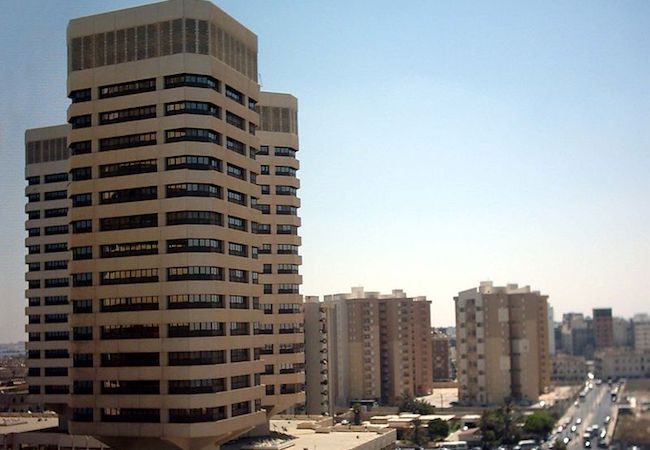Libya’s US base request reveals how desperate the Turkish-backed government has become
Libya's recent request for the US to open up a base in the North African country under the pretext of supposedly fighting terrorism, countering organized crime, and "containing" Russia reveals just how desperate the Turkish-backed government has become since it hopes that the anticipated American military presence there would accomplish what Turkey's ongoing intervention has thus far failed to do, namely getting General Haftar to halt his campaign against the capital and thus facilitate a political solution to the country's long-running conflict.

Details are scarce about the overall impact that Turkey’s ongoing military intervention in Libya has had on altering the course of the country’s long-running conflict, but judging by the UN-recognized “Government of National Accord’s” (GNA) recent request for the US to open up a base there under the pretext of supposedly fighting terrorism, countering organized crime, and “containing” Russia, , it thus far hasn’t succeeded in its original goal of getting General Haftar to halt his campaign against the capital and consequently facilitate a political solution to the war. RT reported that the GNA’s Interior Minister told Bloomberg that “If the US asks for a base, as the Libyan government we wouldn’t mind – for fighting terrorism, organized crime and keeping foreign countries that intervene at a distance. An American base would lead to stability…The redeployment is not clear to us… But we hope that the redeployment includes Libya so it doesn’t leave space that Russia can exploit.” His remarks were made in response to the US’ plans to redeploy some of its African-based forces to other theaters in order to more effectively confront Russia and China, which evidently made the GNA fear that they’re at risk of losing American support unless they can convince the Pentagon to perceive the country through its new strategic prism of “Great Power competition”.
There are several arguments for and against the possible establishment of a US base in Libya. On the one hand, this move would indeed correspond with the Pentagon’s policy of “Great Power competition”, and it could definitely get General Haftar to reconsider the wisdom of continuing his campaign against his country’s capital if he thought that there was a credible chance that Americans might be injured or worse as “collateral damage”. His GCC+ patrons wouldn’t want to risk being blamed for providing his forces with weapons and other forms of assistance in the event that such a scenario transpires, which could in turn compel them to demand that he backs off and returns to the negotiating table. On the other hand, however, the American public is extremely sensitive to anything having to do with Libya after the Benghazi incident, so it probably wouldn’t be popular during the heated election season if Trump decided to go forward with that move. In addition, the President has made a point over the past few years of emphasizing that it isn’t his country’s responsibility to protect the EU all on its own, which it would essentially be doing by undertaking that course of action. Finally, the threat of “mission creep” is much too great to be ignored and could see the US dragged into playing a more direct role in the conflict.
For these reasons, it’s unlikely that the US will open up a base in Libya, at least during the ongoing election season, though that doesn’t mean that it won’t possibly deploy its special forces there to assist the GNA. Should it deepen its involvement in the war, then this would by default serve to advance Turkey’s strategic interests since America would be compensating for what the former has thus far failed to do in deterring General Haftar. Evidently, Turkey’s intervention there has had the opposite of its intended effect since it only inspired more resistance to the GNA. Ankara is also very wary of “mission creep”, hence why it wants to “share the burden” for supporting the UN-recognized government with other interested stakeholders such as the US. Considering the paramount influence that Turkey wields over the GNA, it wouldn’t be inconceivable that it might have “encouraged” its partners to make their controversial base request in the first place. Portraying it as an anti-Russian move in line with the Pentagon’s “Great Power competition” policy is a clever marketing tactic designed to increase its appeal among key members of the “deep state”, but it’s also counterproductive from the standpoint of public opinion since Americans as a whole aren’t interested in their leaders risking the lives of their troops for the vague goal of “containing” Russia in one of the world’s most war-torn countries.
It would be a scandal of epic proportions if Americans were killed in Libya by General Haftar’s forces, especially if it was alleged that Russian “mercenaries” and/or Russian-provided military equipment was responsible. Trump would have no choice but to react in his country’s characteristically “overwhelming” way, though that would dangerously risk escalating the already tense situation between the two nuclear-armed Great Powers, but backing down also wouldn’t be an option given the heated electoral context at home. Considering this, it can be concluded that it’s against Trump’s personal political interests and arguably the US’ national ones to open up a base in Libya while the civil war is still raging, though this controversial move would definitely work out to the benefit of the GNA, its Turkish patron, and the anti-Russian members of the American “deep state”. The US could potentially change the entire dynamics of the conflict through the possible deployment of its forces to Libya, but it would thenceforth have to take responsibility for a very weak and fragmented government that’s extremely unpopular outside of the capital, thus making this a costly exercise in “nation-building” of the sort that dramatically failed in Afghanistan and Iraq. Cynically speaking, it would be much easier for the US to just let General Haftar win and then simply re-recruit him as an American ally afterwards.




